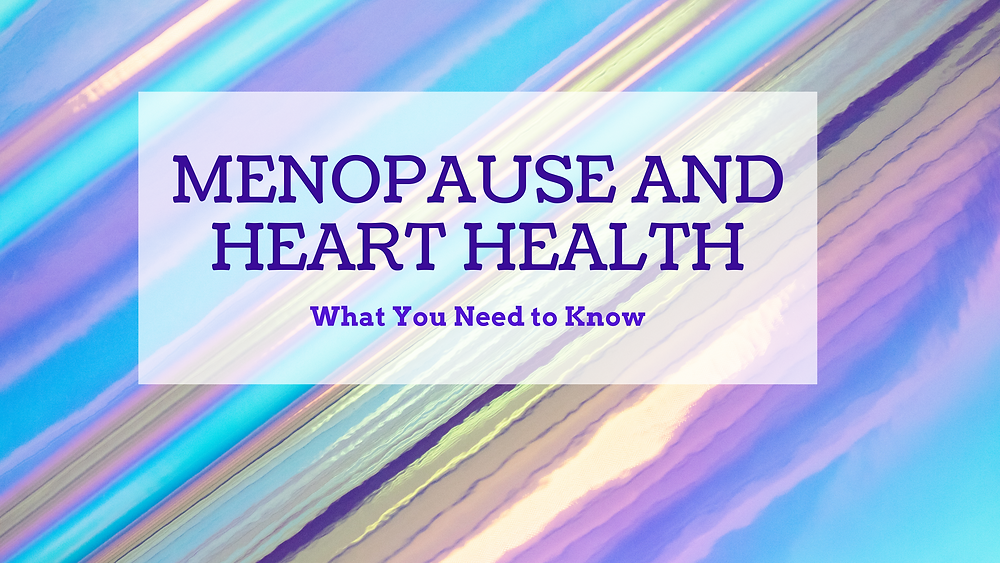Menopause and Heart Health: Understanding the Risks and Protecting Your Well-Being

Menopause is a natural biological transition that marks the end of a woman’s reproductive years. It typically occurs between the ages of 45 and 55, with perimenopause—the stage leading up to menopause—beginning several years earlier. During menopause, the ovaries gradually produce less estrogen and progesterone, leading to various physical and emotional changes.
Common symptoms of menopause include:
- Irregular periods and eventual cessation of menstruation
- Hot flashes and night sweats
- Mood swings and irritability
- Sleep disturbances
- Decreased bone density
- Weight gain, particularly around the abdomen
- Changes in cholesterol levels
The Link Between Menopause and Heart Attacks
One of the most concerning health risks associated with menopause is its impact on heart health. Estrogen plays a crucial role in maintaining blood vessel flexibility and regulating cholesterol levels. As estrogen levels decline, women experience an increase in LDL (“bad”) cholesterol and a decrease in HDL (“good”) cholesterol, raising the risk of heart disease.
Research indicates that postmenopausal women are at a higher risk of heart attacks compared to premenopausal women of the same age. Additional factors such as weight gain, insulin resistance, and high blood pressure further contribute to cardiovascular risks.
Dr. Lily Stern, a cardiologist at the Cedars-Sinai California Heart Center, emphasizes that menopause-related changes are common, but they should not be ignored. “It’s important that you talk to your doctor about your symptoms and changes in your body, no matter how minor they seem,” she advises.
Addressing Heart Health During Menopause
The best way to protect yourself from heart disease is by monitoring key health indicators such as blood pressure, blood glucose, and cholesterol levels. Experts recommend making lifestyle modifications to counteract menopause-related risks.
- Prioritize a Heart-Healthy Diet
- Increase intake of fruits, vegetables, and whole grains.
- Choose lean proteins such as fish, poultry, and plant-based sources.
- Reduce saturated fats and avoid trans fats.
- Limit processed sugars and refined carbohydrates.
- Incorporate healthy fats from sources like olive oil, nuts, and avocados.
- Engage in Regular Physical Activity
Dr. Martha Gulati, director of Preventive Cardiology at Cedars-Sinai, stresses the importance of exercise. “You don’t need to be overly focused on the scale, but get active—the more active you are, the better your long-term heart health.”
- Aim for at least 150 minutes of moderate-intensity exercise per week.
- Incorporate resistance training to preserve muscle mass and bone density.
- Engage in enjoyable activities such as walking, swimming, or dancing.
- Manage Stress and Improve Sleep
- Practice relaxation techniques like yoga, meditation, or deep breathing.
- Maintain a consistent sleep schedule and create a restful environment.
- Limit caffeine and screen time before bed.
- Consider Hormone Therapy
Hormone replacement therapy (HRT) can help alleviate menopause symptoms, including hot flashes and night sweats. While HRT is not a direct treatment for heart disease, studies suggest that women who begin hormone therapy within the first ten years of menopause do not face an increased risk of cardiovascular disease.
Dr. Stern encourages women to discuss hormone therapy with their doctors: “There’s a lot of misinformation about hormone therapy and cardiovascular health. Women should explore their options to maintain a good quality of life.”
Are Latina Women at Greater Risk?
Latina women may face unique challenges related to menopause and heart disease. Research suggests that Latinas experience menopause symptoms earlier and more intensely than other ethnic groups. Additionally, factors such as higher rates of obesity, diabetes, and high blood pressure contribute to a greater risk of heart disease in this population.
Cultural factors may also influence health behaviors. Some Latina women may hesitate to seek medical care due to language barriers, financial concerns, or traditional beliefs about aging. Community outreach programs and culturally competent healthcare providers can help bridge these gaps.
Menopause is an inevitable phase of life, but its impact on heart health should not be underestimated. By taking proactive steps—such as maintaining a healthy diet, exercising regularly, managing stress, and considering medical options—women can reduce their risk of heart disease and improve their overall well-being.
For Latina women, addressing cultural and socioeconomic factors is crucial to ensuring better health outcomes. Open conversations with healthcare providers and access to resources tailored to the Latino community can help women navigate menopause with confidence and resilience.
If you are approaching menopause or already experiencing its effects, consult your doctor to develop a personalized plan to protect your heart and maintain a high quality of life.

